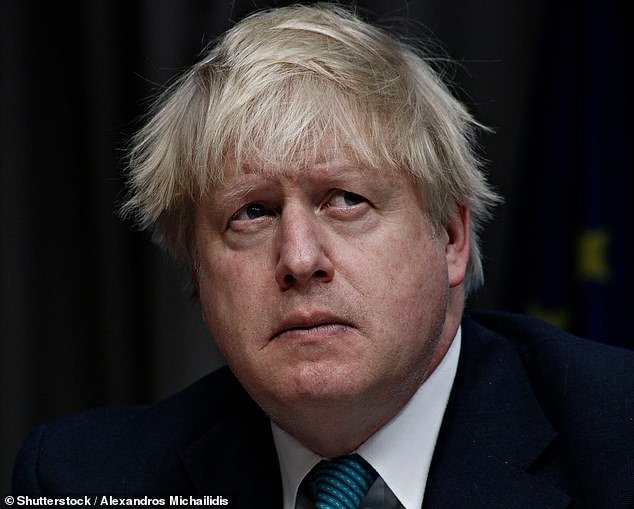RUTH SUNDERLAND: When people lack confidence, they pile money into savings accounts, even at negative rates – the only solution is to restore calm
- Consumer spending has recovered, even though consumer confidence is low
- Britons are saving at extraordinarily high levels, even though they are losing money in real terms as a result
The trauma inflicted on the economy by coronavirus is having perplexing effects. One, as Andy Haldane, the Bank of England chief economist, pointed out a couple of days ago, is that consumer spending has recovered, even though consumer confidence is low.
Another is that Britons are saving at extraordinarily high levels, even though they are losing money in real terms as a result, because the returns on most accounts are below inflation.
The two are linked. One explanation is that some households are spending and saving more at the same time.

Keep calm: We need less panic from Prime Minister Boris Johnson and his medical advisers
During lockdown there was a period of enforced saving. Some households where adults are working from home will have seen a big reduction in normal outgoings on things such as commuting, office clothes and lunches, but with their pay unaffected.
They have therefore been able to resume spending and save more than normal. The most recent savings ratio tops 29 per cent, which is, by our standards – Britain is a debt-happy nation – high. People are setting aside around a third of their incomes, the highest proportion for decades.
Confidence, that elusive factor so important for economic health – or lack of it, lies behind this striking figure. Local lockdowns have alarmed people and, when in doubt, they hoard cash. Up to a point this is rational and desirable as, sadly, jobs will go and incomes will be reduced. But a savings ratio like this is evidence backing the views of Haldane, the leading voice calling for a sense of proportion.
He believes perception of the risks from the virus has become exaggerated and excessive. As he points out, this psychology lies in our past as hunter-gatherers – humans evolved to over-estimate dangers to our lives and livelihoods.
A state of twitchy hyper-alertness was probably very useful indeed when we had to guard against prowling wild animals.
It serves us less well when we need a cool assessment of statistics and risks. Our newfound love of saving – we now put aside a bigger percentage of our incomes than the thrifty Germans – also reflects the lack of other options for safe investment.
Pre-Covid, there was a string of scandals borne out of people’s desperation to do better than the measly rates on bank and building society accounts. To name but two, the Neil Woodford affair, where, we learned last week, investors will have to wait another year for their money back, and the Wellesley peer-to-peer lender collapse.
An excess of savings is a headache for policy makers, who want individuals and firms to be prudent, but not too prudent.
John Maynard Keynes called it the paradox of thrift. Saving larger amounts may look sensible, but collectively, it acts as an economic brake. That is one factor behind the discussion on negative interest rates.
Top Bank of England policymakers are divided. High street bank chiefs I have spoken to hate the idea, because it would hit profit margins and create much work on systems and explaining it to customers.
Negative rates are not the answer. Among other things, they punish the long-term prudent as well as the panic savers, and send out a terrible message that financial responsibility is to be penalised.
When people lack confidence, they pile money into savings accounts, even at negative rates. The only solution is to restore confidence and calm. We need more good sense from the likes of Haldane and Chancellor Rishi Sunak, less panic from Boris and his medical advisers.
